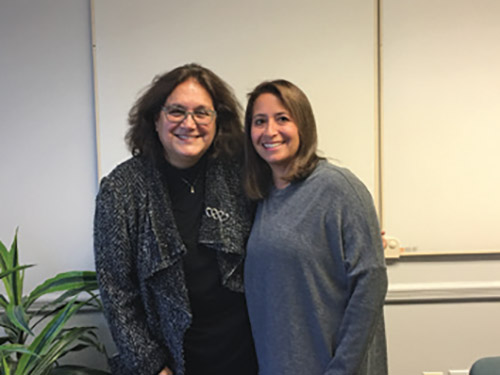
This month’s article was written by Rabbi Igael Gurin-Malous, director of spiritual counseling at Beit T’shuvah and the executive director of the new T’shuvah Center in NYC.
Pain. Loss. Grief. Fear. Longing. Heartache. Sadness. These are the experiences of life, and every person must struggle with these feelings. Yet we gloss over them in common conversation. “Hi, how are you?” is almost always met with “Good, OK, even when we feel the exact opposite. This element of our human condition, which could not be felt more profoundly these days, challenges us to examine the very depths of ourselves and our ability to reach the heights of our potential growth.
I see it in my work every day. As the spiritual director at Beit T’Shuvah, a residential addiction recovery center in Los Angeles, California, we center our work on Jewish thought and spirituality as a core value toward recovery. I meet many people and families hurting in need of help and direction.
Sunday we will mark Tisha B’Av, the ninth day of the Hebrew month of Av. Considered one of the major fast days in our tradition, it is the day we choose to focus on the destruction of our ancient temple in Jerusalem and the beginning of the exile that changed everything. Our diaspora and our understanding of rabbinical Judaism are a direct result of that event and our quest to find new meaning in an ever-changing world. It is on this day that personal trauma can align with national trauma.
We are taught that the ancient Temple was destroyed because of senseless hatred. A community that did not embrace acceptance, authenticity and compassion. Hatred is a result of not seeing other people’s pain and suffering. We often blind ourselves to other people’s pain. Yet when we are open to our own feelings, our ability to connect to others is enhanced.
Using this day of ritual importance serves as an opportunity to better personal understanding. We must look inward and outward to see those who are suffering and see ourselves.
Who among us has not been touched by the disease of alcoholism? Drug abuse? Gambling? Or plain misery and feelings of loneliness and disconnect?
So, I ask myself, how do we respond to life’s challenges? How do we return to a state of peace and equanimity within ourselves? How do we repent? Our lives are filled with daily actions and decisions. How do we know when we have made the right decision and how do we acknowledge when we have not?
The answer to these questions, and the remedy to our condition, is to practice acceptance for all who are suffering and to promote connection. Our ability to transform our actions and our points of view hinges on our ability to accept all those around us and see their pain and struggle as our own.
Our charge to invite and connect to all who seek shelter, nourishment (both physical and spiritual) resounds in my heart! We must look each other in the eye and seek that which connects us. We must practice deep and meaningful compassion.
But how? The Jewish idea of teshuva has three meanings. To repent, to return and to answer. Teshuva, real teshuva, that is, real repentance, has in turn three main parts we can use to examine ourselves: truth, remorse and responsibility.
Living in truth one must ask oneself, “What did I do wrong?” and then “Why did I do it? What was the justification I gave myself?” We tell ourselves something when we are about to do something we should not (things like I deserve it/I don’t have time to cook a healthy meal/I’ll go to the gym later/she started it /it’s been a long day/I don’t want to feel like this anymore/it’s too hard, etc.).
By honestly looking at our actions and understanding the lies we tell ourselves, we pave the way to awareness.
In feeling remorse, we have to acknowledge that our actions always affect someone else. We must ask, “Who is affected by my actions? How are they affected by my actions?” The wreckage one person can have on the lives of others is immense, and we tell ourselves lies when we say that we are only hurting ourselves. Seeing what we mean in the world and our interconnectivity is key.
Which leads to responsibility. Now that I looked honestly at my actions and their effect, I can see if I can change. What have I learned about myself? What is my plan to change and strive to be better?
Practicing compassion changes us. Glossing over someone’s pain becomes impossible. We recognize all, who, like us, just want to belong and want to be seen.
Creating communal spaces where we can learn from our cultural heritage to create a better world for all of us is a moral and spiritual necessity in our Jewish community. Inviting back all who want to return. All who are seeking an answer and all who want to become better today than they were yesterday. It is our teshuva.
By Eta Levenson and Lisa Lisser
Eta Krasna Levenson is a clinical social worker who lives in West Orange. She can be reached at [email protected].
Lisa Lisser is a Jewish educator who recently participated in an immersive training program for Jewish educators and clergy at Beit T’Shuva, a Jewish faith-based residential rehab facility in LA. Lisa can be reached at [email protected].













